The future of the automobile industry in Bangladesh
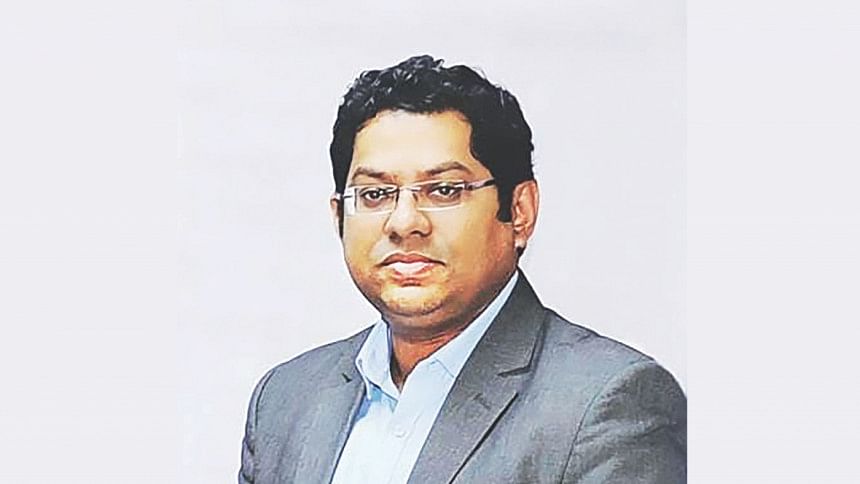
Shoeb Ahmed
Divisional Director, RANCON Automotive Division 03
The automobile industry in Bangladesh, as a whole, is growing. We have an estimated annual demand of 30,000 units for the passenger vehicles among which brand new vehicles are contributing 5,000 units. The demand for brand new cars is increasing as manufacturers are now offering new generation, highly efficient mobility solutions across different customer segments.
Rangs Ltd. is the sole distributor of Mitsubishi Motors in Bangladesh. We have introduced almost all the models manufactured by Mitsubishi. Recently we introduced two new products, namely Xpander and Eclipse Cross. Xpander is a 7-seater utility vehicle for family use and Eclipse Cross has been designed to have the best safety features available with dynamic agility and ride comfort (152 hp). Our vehicles are rigorously tested in different road conditions to make sure they live up to the promised quality commitments.
It's high time the automobile industry stepped into the era of progressive manufacturing. To do that we need to develop forward and backward linkages. The major challenges we face are lack of R&D, inadequate supply of locally developed reliable components, lack of sustainable demand and policy support and poor access to affordable financing. By overcoming these challenges, in the future we can introduce products that will boast the "Made in Bangladesh" tag and offer affordable mobility solutions to all customer segments.

Mohammod Hamdur Rahaman
Senior General Manager & Head of operations, Navana Limited
The automobile market had condensed in 2018, remaining the same throughout 2019. Currently, the preference for SUVs has significantly increased in the market. Since people are travelling long distances more often – to the outskirts of Dhaka city – they prefer travelling in affordable SUVs/Crossovers. Moreover, longtime sedan users are considering a change in their preference, diverting it to affordable SUVs. On the other hand, the import of hybrid vehicles is on the rise due to initial investment/lower lifetime operating costs, fuel efficiency and greater environmental impact.
Navana Limited imports both passenger and commercial vehicles. The passenger car segment ranges from a 1.3L sedan to 4.6L SUVs.
Toyota is synonymous with QDR: Quality, Durability and Reliability. It's the core product quality statement of Toyota, achieved through rigorous R&D. Bearing in mind the road and fuel conditions of Bangladesh, Toyota has installed additional features such as the rough road package in all the vehicles being imported to the South Asian zone.
The scope of local production must be emphasised. The government is developing various automobile policies. We are hopeful about the government policies encouraging local production of automobiles. They will definitely contribute to overcoming the hurdles the automobile industry is facing.

Nayeemur Rahman
Head of Business Planning, Uttara Motors Ltd.
The car industry is not growing in Bangladesh in the way that it should considering the present per-capita income, GDP and economic development of the country. The cost is still too high relative to the affordability of the people in the country. Demand for brand new cars is lower due to higher costs compared to those for used cars.
Uttara Motors Ltd. is the sole distributor of SUZUKI vehicles in Bangladesh and is the distributor of a strong passenger car lineup starting from entry-level hatchbacks to sedans to SUVs. We do a comprehensive check of each and every car upon receiving them. We also do extensive PDI (Pre-Delivery Inspection) before handing over the car to the customer.
Our existing customs duty structure is not encouraging for the car industry. The recently introduced SRO for the automobile industry is a step in the right direction but the conditions in the SRO are not favourable for the industry. We feel a proper structured policy needs to be in place in order to attract foreign direct and local investment.
Uttara Motors has already established a two-wheeler manufacturing plant with a production capacity of around 2.5 lakh motorcycles. We also have a truck and bus chassis assembling plant in Chattogram. Now, we are planning to establish a passenger car assembling plant in the near future considering the recent government support we have received in this sector.

 For all latest news, follow The Daily Star's Google News channel.
For all latest news, follow The Daily Star's Google News channel. 

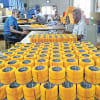
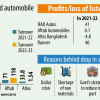
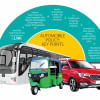
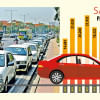


Comments